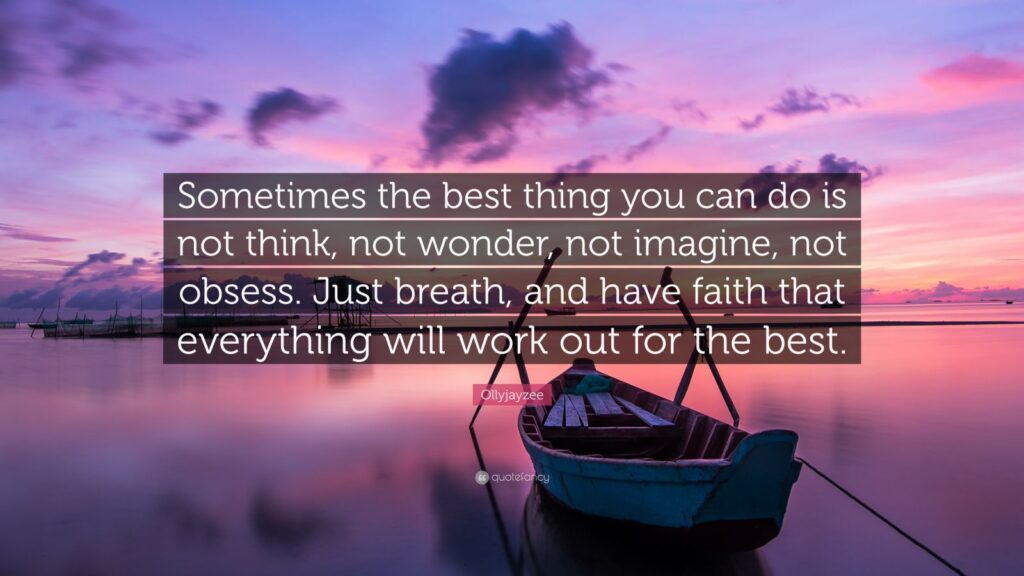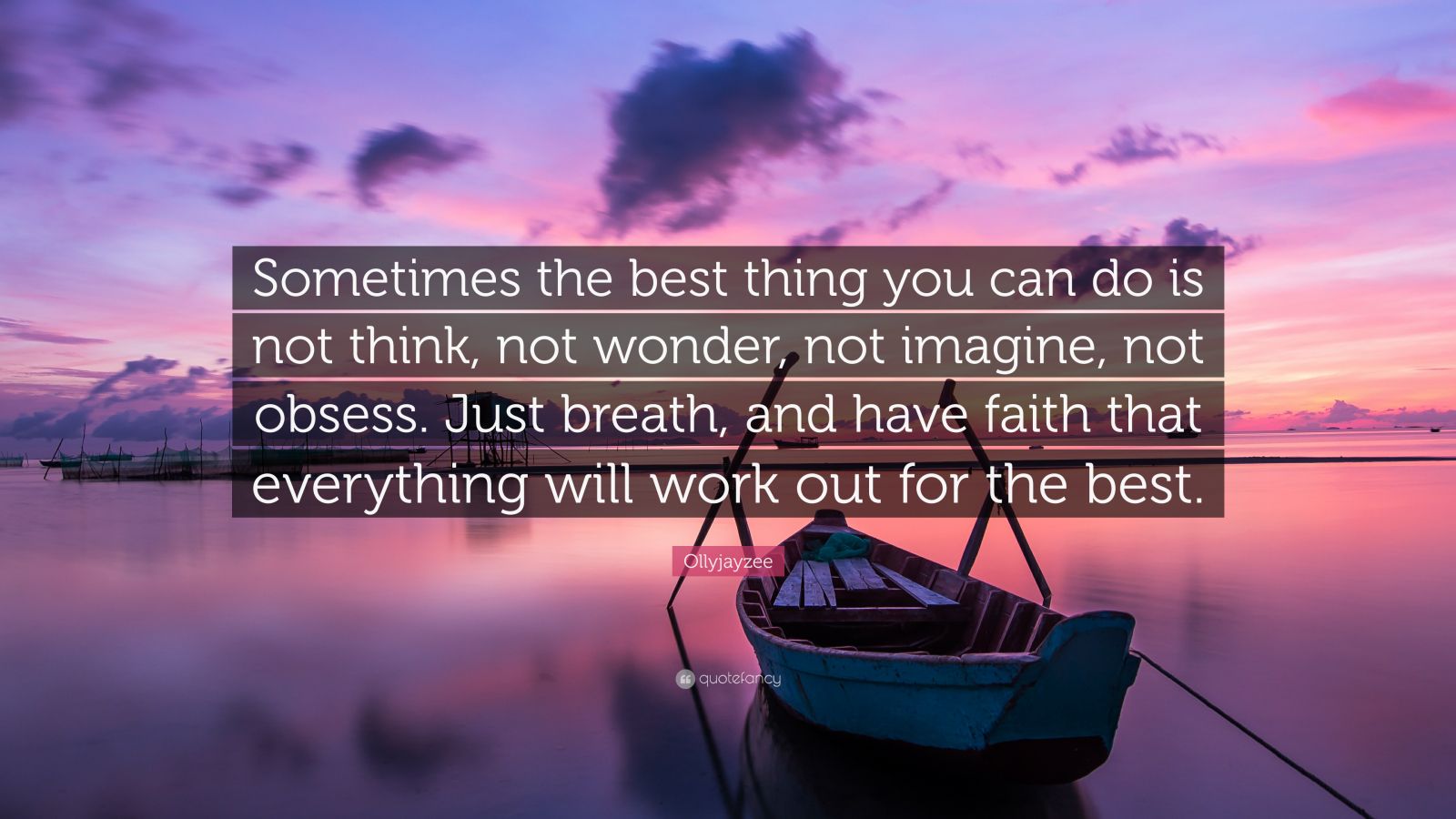
What’s the Best Thing You Can Do? A Guide to Maximizing Your Potential
In a world overflowing with advice, self-help gurus, and endless possibilities, it’s easy to get lost in the noise. We’re constantly bombarded with messages telling us what we *should* be doing, what we *should* be achieving, and who we *should* be. But amidst all this external pressure, the question remains: what’s the best thing you can do, right here, right now, to truly improve your life and reach your full potential? This article delves into practical, actionable strategies, moving beyond generic platitudes to offer tangible steps you can implement immediately. We’ll explore different facets of personal development, from cultivating mindfulness to prioritizing meaningful relationships, and ultimately help you discover what resonates most deeply with your individual journey. Understanding what’s the best thing you can do is a personal journey, not a destination.
Understanding the Landscape: Defining ‘Best’
The concept of “best” is inherently subjective. What constitutes the “best thing” for one person may be entirely irrelevant or even detrimental to another. Therefore, it’s crucial to define what “best” means in the context of your own values, goals, and circumstances. Are you seeking professional advancement? Improved mental well-being? Deeper connections with loved ones? Clarity on your definition of “best” forms the foundation for all subsequent actions.
Consider the different areas of your life: career, relationships, health (physical and mental), personal growth, and finances. Within each of these areas, identify specific goals you’d like to achieve. For example, instead of simply stating “I want to be successful in my career,” define what success looks like to you. Is it a specific job title? A certain level of income? The ability to make a significant impact in your field? The more specific you are, the easier it will be to determine what’s the best thing you can do to move closer to your desired outcome.
Practical Strategies for Personal Growth
Once you have a clearer understanding of your goals, you can begin to implement practical strategies to support your growth. Here are a few key areas to focus on:
Cultivating Mindfulness and Self-Awareness
Mindfulness is the practice of paying attention to the present moment without judgment. It involves observing your thoughts, feelings, and sensations as they arise, without getting carried away by them. Cultivating mindfulness can help you become more aware of your patterns of thinking and behavior, allowing you to make more conscious choices. This awareness is crucial for identifying what’s the best thing you can do to break negative cycles and create positive change.
- Meditation: Even a few minutes of daily meditation can significantly improve your mindfulness.
- Journaling: Writing down your thoughts and feelings can help you process them and gain clarity.
- Mindful Breathing: Focusing on your breath can bring you back to the present moment when you feel overwhelmed.
Prioritizing Meaningful Relationships
Strong, supportive relationships are essential for our well-being. Nurturing your relationships with family, friends, and partners can provide you with a sense of belonging, connection, and purpose. Investing time and effort in these relationships is often what’s the best thing you can do for your overall happiness and fulfillment.
- Active Listening: Truly listen to what others are saying, without interrupting or judging.
- Quality Time: Schedule dedicated time to spend with loved ones, free from distractions.
- Express Gratitude: Let the people in your life know how much you appreciate them.
Continuous Learning and Skill Development
The world is constantly evolving, and it’s important to stay curious and continue learning new things. Acquiring new skills can open up new opportunities, boost your confidence, and keep your mind sharp. Identifying areas where you can improve and actively seeking out learning opportunities is often what’s the best thing you can do to advance your career or pursue your passions. [See also: How to Learn New Skills Quickly]
- Online Courses: Platforms like Coursera, Udemy, and edX offer a wide range of courses on various topics.
- Reading: Reading books, articles, and blogs can expand your knowledge and perspective.
- Mentorship: Seek guidance from experienced professionals in your field.
Taking Care of Your Physical Health
Your physical health is the foundation for everything else. When you’re feeling physically well, you have more energy, focus, and resilience. Making healthy choices, such as eating nutritious foods, exercising regularly, and getting enough sleep, is undoubtedly what’s the best thing you can do to optimize your overall well-being.
- Balanced Diet: Focus on eating whole, unprocessed foods.
- Regular Exercise: Aim for at least 30 minutes of moderate-intensity exercise most days of the week.
- Sufficient Sleep: Aim for 7-8 hours of sleep per night.
Embracing Failure and Resilience
Failure is an inevitable part of life. Everyone experiences setbacks and disappointments. However, it’s how you respond to these challenges that determines your success. Embracing failure as a learning opportunity and developing resilience – the ability to bounce back from adversity – is often what’s the best thing you can do to achieve your long-term goals. [See also: Building Resilience in the Face of Adversity]
- Reframe Your Perspective: View failures as learning experiences, not as personal flaws.
- Seek Support: Talk to trusted friends, family members, or therapists about your struggles.
- Practice Self-Compassion: Be kind to yourself during difficult times.
The Power of Small Steps: Consistency is Key
It’s important to remember that significant change doesn’t happen overnight. It’s the consistent, small steps you take each day that ultimately lead to lasting results. Don’t get discouraged if you don’t see immediate progress. Focus on making small, sustainable changes that you can maintain over the long term. Choosing what’s the best thing you can do, even if it seems insignificant, is a step in the right direction. Even just taking five minutes to meditate or making a healthy snack choice can contribute to your overall well-being.
Overcoming Obstacles and Staying Motivated
Staying motivated on your personal growth journey can be challenging. There will be times when you feel discouraged, overwhelmed, or tempted to give up. Here are a few strategies to help you overcome obstacles and stay on track:
- Set Realistic Goals: Break down large goals into smaller, more manageable steps.
- Track Your Progress: Monitoring your progress can help you stay motivated and see how far you’ve come.
- Reward Yourself: Celebrate your achievements, no matter how small.
- Find an Accountability Partner: Having someone to support you and hold you accountable can make a big difference.
- Remember Your Why: Remind yourself of the reasons why you started this journey in the first place.
Conclusion: Defining Your Own ‘Best’ Path
Ultimately, what’s the best thing you can do is a question that only you can answer. It’s a journey of self-discovery, experimentation, and continuous learning. By cultivating mindfulness, prioritizing meaningful relationships, developing new skills, taking care of your physical health, and embracing failure, you can unlock your full potential and create a life that is both fulfilling and meaningful. Remember that the path to personal growth is not linear. There will be ups and downs, setbacks and triumphs. The key is to stay committed to your journey, to be kind to yourself along the way, and to always strive to become the best version of yourself. Choosing what’s the best thing you can do starts with understanding yourself and what truly matters to you. So, take some time to reflect, explore your options, and create a plan that aligns with your values and goals. The world is waiting to see what you can achieve.

